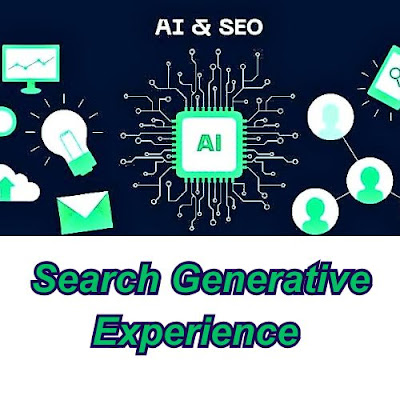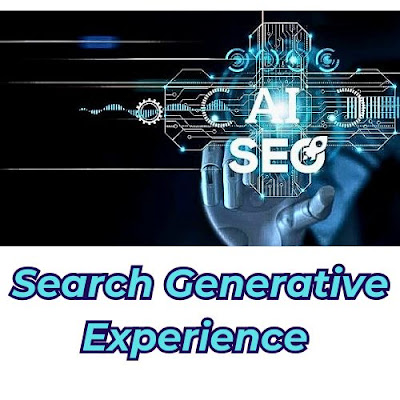AI & SEO: Navigating the Era of Search Generative Experience
The evolution of search engines is entering a new era with the integration of artificial intelligence (AI), particularly through the concept of the
Search Generative Experience (SGE).
This shift is fundamentally transforming how users interact with search engines, how content or media is discovered, and how search engine optimization (SEO) strategies must adapt.
Understanding Search Generative Experience (SGE)
Search Generative Experience refers to the use of generative AI in search engines to produce more intelligent, conversational, and personalized results. Rather than providing a list of blue links, SGE offers synthesized answers by pulling data from various sources and presenting it in natural language responses.
This is powered by large language models (LLMs) like Google’s Gemini and OpenAI’s ChatGPT, which can analyze and interpret massive amounts of information across the web to generate contextual, nuanced answers to complex queries. SGE is being embedded in search engines like Google Search and Bing, signaling a paradigm shift in how information is retrieved and consumed.
How AI Is Reshaping Search Behavior
-
Conversational Search Queries: Users are increasingly phrasing queries as natural conversations rather than using keyword strings. AI models can understand the intent behind long-form questions and offer relevant summaries, which means traditional keyword strategies must evolve to accommodate semantic search.
-
Zero-Click Searches: With AI-generated summaries answering questions directly on the results page, users may not click through to websites as often. This zero-click phenomenon is both a challenge and an opportunity for SEO professionals to optimize content in a way that surfaces in AI-generated responses.
-
Dynamic Content Aggregation: AI can pull insights from multiple web pages, videos, and structured data to deliver a unified answer. This reduces the reliance on individual pages ranking number one and instead emphasizes the need for quality content that AI trusts and uses as a source.
Implications for SEO in the Age of SGE
1. Content Optimization for AI Consumption
Traditional SEO focused on optimizing content for crawlers and ranking algorithms. Now, the focus must also include optimizing for LLMs. This means:
-
Clear, authoritative content: AI models favor well-structured, factually accurate content with high domain authority.
-
Semantically rich language: Use of synonyms, related concepts, and contextually relevant phrases helps AI understand the depth of your content.
-
Structured data: Schema markup becomes even more critical to help AI understand page context, entities, and relationships.
2. E-E-A-T is More Important Than Ever
Google's E-E-A-T (Experience, Expertise, Authoritativeness, and Trustworthiness) guidelines are integral to how AI selects sources. Ensuring content is authored by credible experts, properly cited, and regularly updated can help improve visibility in AI summaries.
3. Changes in Keyword Strategy
AI has advanced beyond exact-match keywords. Instead of targeting individual keywords, SEO strategies now focus on topic clusters and search intent. Content should answer broad questions and address user journeys from awareness to decision-making, accommodating the various layers AI models use to form responses.
4. Increased Value of First-Party Data and Proprietary Insights
Since AI models seek unique perspectives and verified facts, offering original research, case studies, customer testimonials, and expert commentary can make your content stand out. The more unique your insights, the more likely AI will reference your material.
5. Visual and Multimedia Content Optimization
With AI integrating data from videos, podcasts, and images, SEO strategies must extend beyond text. Proper tagging, transcription, and metadata for non-text content increases its discoverability and usefulness for generative models.
New Metrics of Success in an AI-Powered SERP
The traditional metrics like CTR (Click Through Rate) and SERP position may not fully capture success in SGE environments. Instead, marketers must focus on:
-
Impressions in AI answers: How often your content is cited or linked in AI-generated summaries.
-
Brand mentions: AI often uses authoritative sources; being mentioned (even without a link) can increase brand visibility.
-
Engagement metrics: Time on site, scroll depth, and user interactions can indicate content quality and help boost authority.
-
Voice search and featured snippets: Content optimized for these formats is often used by AI responses.
Tools and Techniques for SGE Optimization
To adapt effectively, SEO professionals should leverage tools and techniques that align with generative AI dynamics:
-
AI content analysis tools like Clearscope, SurferSEO, and MarketMuse to ensure comprehensive coverage of relevant topics.
-
LLM testing platforms to see how your content is interpreted by AI models.
-
Monitoring AI-generated SERPs using search simulators or updates from Google’s Search Labs to analyze which content is being cited.
Additionally, embracing content diversification—creating content in multiple formats (articles, videos, podcasts, infographics)—ensures higher visibility across AI-generated answers.
The Role of Human Creativity in an AI Landscape
While AI can synthesize and summarize, it still relies on human-created content as its foundation. The role of creative professionals remains vital:
-
Original storytelling: AI struggles to replicate genuine human experiences and emotions.
-
Niche expertise: Deep domain-specific knowledge often isn’t well-represented in generalized models.
-
Community building: AI doesn’t build relationships; brands that foster real communities and user engagement hold unique value.
Ethical Considerations and Transparency
As SGE becomes widespread, concerns about misinformation, source attribution, and content ownership arise. SEO professionals and content creators must:
-
Ensure transparency in data sources.
-
Push for proper attribution in AI summaries.
-
Advocate for fair content usage policies by search platforms integrating AI.
Creators should also explore methods of watermarking or embedding metadata that signals authorship and ownership, especially as AI continues to generate outputs derived from various sources.
Future Outlook: What’s Next?
As search becomes more personalized and context-aware, we can expect:
-
Hyper-personalized results: Based on browsing history, preferences, and even user emotions in the future.
-
Voice and multimodal search: Combining text, voice, image, and even gestures into a cohesive search input.
-
AI assistants replacing search engines: Conversational AI may become the primary interface, offering answers proactively without traditional query inputs.
To stay competitive, SEO professionals must adopt a mindset of continuous learning, experimentation, and cross-channel integration—blending SEO, content marketing, data analytics, and user experience design.
Conclusion
The Search Generative Experience marks a defining chapter in the evolution of search. As AI reshapes the digital landscape, SEO is no longer just about pleasing algorithms but about serving user intent through rich, authoritative, and adaptive content. Those who embrace AI’s potential and tailor their strategies to meet this new reality will be the ones who thrive in tomorrow’s search ecosystem.








No comments:
Post a Comment